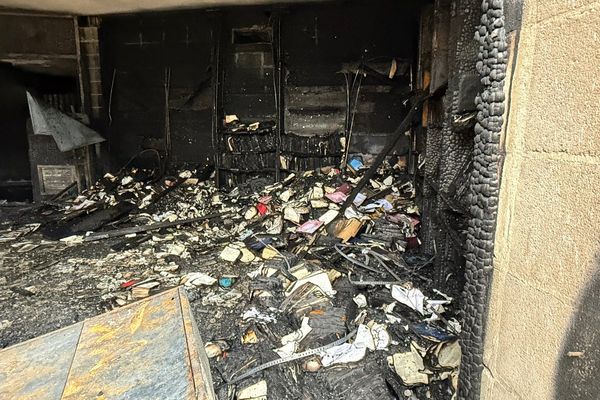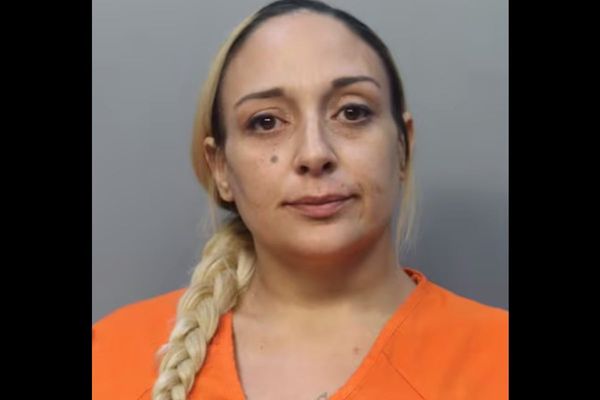An inquest examining the deaths by suicide by four police officers in Tasmania has heard how overworked officers were self-medicating with alcohol and drugs, were poorly served by under-trained welfare staff, with one officer enduring horrific nightmares of what he had seen in the line of duty.
WARNING: This story touches on themes of depression and suicide.
The three-weeks of hearings learned about one instance where an officer went from being a happy-go-lucky family man who was exceptionally good at his job, to an absolute wreck who couldn't get out of bed before his eventual death by suicide.
Sergeant Robert Cooke — affectionately known as "Cookie" — had been diagnosed a year before he died in October 2020 with post-traumatic stress disorder, which was attributed to years of cumulative trauma and over-work.
Before he was placed on leave, the veteran officer of 30 years was in charge of Oatlands police station, in rural central Tasmania, which meant he was regularly on-call and would often take sole responsibility for an incident.
The inquest was given evidence that Sergeant Cooke had worked 16-hour continuous shifts for four weeks during fires in the Central Highlands in 2019, and was experiencing increased anxiety, including nightmares of the dead and burnt bodies he had seen throughout his career.
Clinical psychologist Jacqueline Prichard — who was treating Sergeant Cooke — said he could sometimes go from one traumatic incident to the next or straight into shift work before he would have had the opportunity to fully process the initial trauma.
"Your brain naturally resolves trauma in your sleep patterns in the three days following a traumatic incident, which is why it is important to get at least eight hours of sleep in the subsequent nights," Ms Prichard said.
"If there's no chance for sleep, or to think about the traumatic incident, then it becomes stored within the brain and can be as vivid as it was on the day."
The inquest also heard there was a tendency among some police officers to abuse alcohol after a serious incident, which can also be disruptive to a person's sleep pattern.
"If officers could clean out each trauma as they occurred, so they weren't getting the cumulative effect, that would help," Ms Prichard said.
Sergeant Cooke's then-partner, Senior Constable Elizabeth Carlisle, said well-meaning but under-trained people in welfare roles at Tasmania Police had a negative impact on his mental health.
Senior Constable Carlisle told the inquest she did not believe a welfare officer supporting the 49-year-old in the lead-up to his death had any formal training in assisting someone with post-traumatic stress disorder (PTSD).
"Welfare officers back then were not equipped to deal with someone as unwell as Sergeant Cooke … but they are significantly better trained now," she said.
Abused during bushfire evacuations
The deaths of Senior Sergeant Paul Reynolds, Constable Simon Darke and Constable Paul Hunt, between 2016 and 2020, have also formed part of the inquest that ended in Hobart on Friday.
In her evidence to the inquest, a former partner of Constable Simon Darke said the 45-year-old had threatened self-harm before he took his own life in 2019, but there was a perception that he would be judged if he got help.
Shanna Sweeney, said she contacted police after Constable Darke threatened suicide in 2011 but did not believe her concerns were taken seriously.
She said that Constable Darke was concerned he could be punished if he was seen as being vulnerable.
The inquest also heard evidence from Constable Darke's father, Graham, who told the court the long hours during the 2019 bushfires and run of night shifts at a Hobart police station became too much for his son.
"He mentioned he had copped a lot of abuse when he asked people to leave their homes during the fires. He then went onto night shift by himself," Mr Darke told the inquest.
The inquest was also told the Department of Police, Fire and Emergency Management had made significant changes to the welfare protocol as a direct consequence of Constable Hunt's suicide in 2016.
Constable Hunt took his own life on the same day he received an unannounced visit from Professional Standards Command (PSC) personnel over allegations that he used his police badge and other people's driver's licence numbers to obtain codeine and pseudoephedrine-based medications from pharmacies in Hobart.
The court was told that the 32-year-old had his personal phone confiscated and did not have a support person present at the meeting with officers from PSC when he was officially stood down from his role.
Police Inspector John Ward told the inquest that he saw the benefit of putting a system in place where a risk assessment is carried out before an officer is approached about an investigation involving them.
"I was aware that Constable Hunt had been suffering from a medical condition, but didn't realise he was experiencing suicidal thoughts," he said.
The inquest was told that Senior Sergeant Paul Reynolds died by suicide in September 2018, the day after officers from the PSC searched his residence and confiscated his phone and other personal items.
At the time, he was facing allegations that he had sent and received child exploitation material, and that he had groomed young men.
Director of wellbeing support at Tasmania Police, Matthew Richman, told the court, the organisation has looked at what additional early intervention opportunities could be implemented as a direct consequence of Senior Sergeant Reynolds' death.
"Every aspect of policing has changed dramatically from when Senior Sergeant Reynolds started his career to the time of his death, but I think there is an opportunity to rethink our wellbeing check approach," he said.
The inquest was told it is now standard procedure for a Tasmania Police officer to be offered a replacement mobile phone if their personal one is confiscated as part of an investigation.
It also heard that significant improvements had been made regarding welfare after the deaths of the four officers, including de-stigmatising post-traumatic stress disorder and other mental health conditions.
The inquest was told that, while Tasmania Police has made improvements in staff rosters and resourcing, it is facing an 18-month delay in the publication of a fatigue-management policy.
Work is continuing between the department, the Police Association of Tasmania and the University of Tasmania to research and identify areas that regulate workloads.
Former commissioner Darren Hine said a lot of improvements had been made over the years and Tasmania Police had dramatically increased the number of welfare officers after a funding submission to the government.
"The area of welfare and mental health will never be finished. It is a growing body of knowledge and it's something we should never stop learning about," Mr Hine said.
Coroner Simon Cooper is expected to hand down his findings next year.







